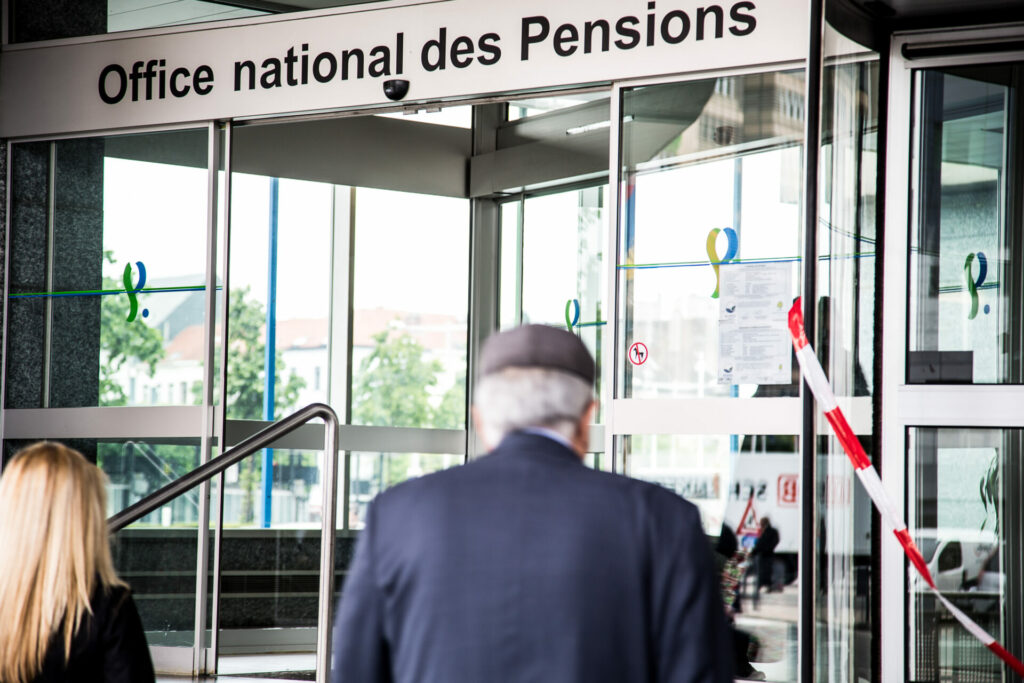The long-awaited pension reform on which an agreement was reached in July last year has finally been given the definitive green light.
From the reintroduction of the pension bonus to stricter rules for minimum pensions, there will be various changes which will alter most Belgian residents' finances.
The Federal Parliament has finally approved the pension reform, Pensions Minister Karine Lalieux (PS) and the Federal Pension Services confirmed. The core cabinet of ministers reached an agreement on this text last summer but the precise rules have now been fixed and will take effect soon.
The deal should help "control the cost of ageing" and better reward those who work longer than required, in line with the "Work must pay more" mantra of the De Croo government. Of all countries in the industrialised world, elderly people in Belgium are most dependent on their statutory pensions, and its population is growing rapidly.
Translation: We said we would. Now we've done it! Pension reform passed in the Chamber of the Parliament. Proud of the work accomplished and of this strong project for a sustainable pension system with greater solidarity.
Pension bonus: What is it and who gets it?
Under the new reform, ministers agreed to restore the pension bonus which had previously been dropped by the Charles Michel government (2014-2018).
The main purpose is to encourage people who want to retire early to continue working. The current retirement age is 65 in Belgium, but many people can retire a few years earlier if they have completed a 42-year career.
Under the scheme, anyone working beyond the legal age of retirement – the earliest date on which they are allowed to retire – will benefit from a bonus that increases progressively over three years, up to €33,975. This is more than the previous maximum of €22,645.
The bonus amount depends on the number of career years workers have at the earliest retirement date – and increases for every extra day that is worked. People can accrue the bonus for up to a maximum of three years after their retirement date. Working full-time is not a prerequisite for a bonus, which will be proportional to the working hours.
For example, a person who has worked for 44 years with a retirement date of 1 May 2025 and postpones their retirement for three years to work full-time will receive €33,975.
A person who worked for just 42 years with the same earliest retirement date, also postponing their retirement for three years to work full-time will receive €22,650. Finally, a person with the same career who works half-time (50%) for three years will receive €11,325 in a single payment.
Employees, civil servants and self-employed people are eligible to receive the bonus and will receive it automatically. Their conventional pension, both statutory and supplementary, plus the bonus combined cannot exceed €7,969.68 per month or €95,636.10 gross per year. Nothing will change for people who are already retired and those who receive the old pension bonus.
This tax-free sum will be paid in one instalment (equivalent to receiving monthly payouts for 20 years) several months after they stop their additional working period. People can also stagger the payout to get a monthly bonus.
The system will take effect from 1 January 2025. From that date, anyone who works extra will get the pension bonus. A transitional arrangement has been worked out so that those retiring now, or in the coming months, can start accruing the bonus from 1 July but only if their retirement date is postponed until 1 January 2025.
Minimum pension
A few years ago, the minimum pension was already raised to €1,500 net per month, and due to high inflation and corresponding indexations, this further rose to €1,600 per month. Stricter rules will apply from 1 January 2025 and for those aged 54 or younger at that time. For those already receiving a minimum pension today, nothing changes.
To be entitled to the full minimum pension, a person must have worked 5,000 days (a full-time working year has an average of 250 days, meaning this is the equivalent of 20 years of work). Those working fewer years or half-time only get part of the minimum pension.
Full-time unemployment no longer counts when calculating a minimum pension period, but other forms of absence such as maternity and paternity leave or time off for informal care still count as time worked.
Related News
- Belgium tightens tax rules for expats
- Brussels updates renting rules: What changes for tenants and landlords?
- Higher minimum wages and childcare priority for working parents: What changes on 1 April?
To pay for the pension bonus and the minimum pension, the pension reform includes some adjustments to the pension system that apply to specific professional groups, including civil servants. The government is bringing an end to the system that sees pensions follow the wage increase of civil servants still working, limiting this to 0.3% per year of the total civil servants' pension.
The reform is expected to save 0.5% of gross domestic product by 2070, or €3 billion. However, according to the Ageing Commission, the cost of ageing will reach a peak of 4.4% of GDP by 2050.
The Federal Pension Services stressed that, because the law has only just been voted on, it will take several months to adapt the calculations on mypension.be and for people to find out what their bonus will be. From July 2024 the 'My pension bonus' tab will be added, where a person can see whether they can accrue a bonus. From July 2025, the exact amount of the bonus will appear.
More information on pensions can be found on the website of the Federal Pension Services.

